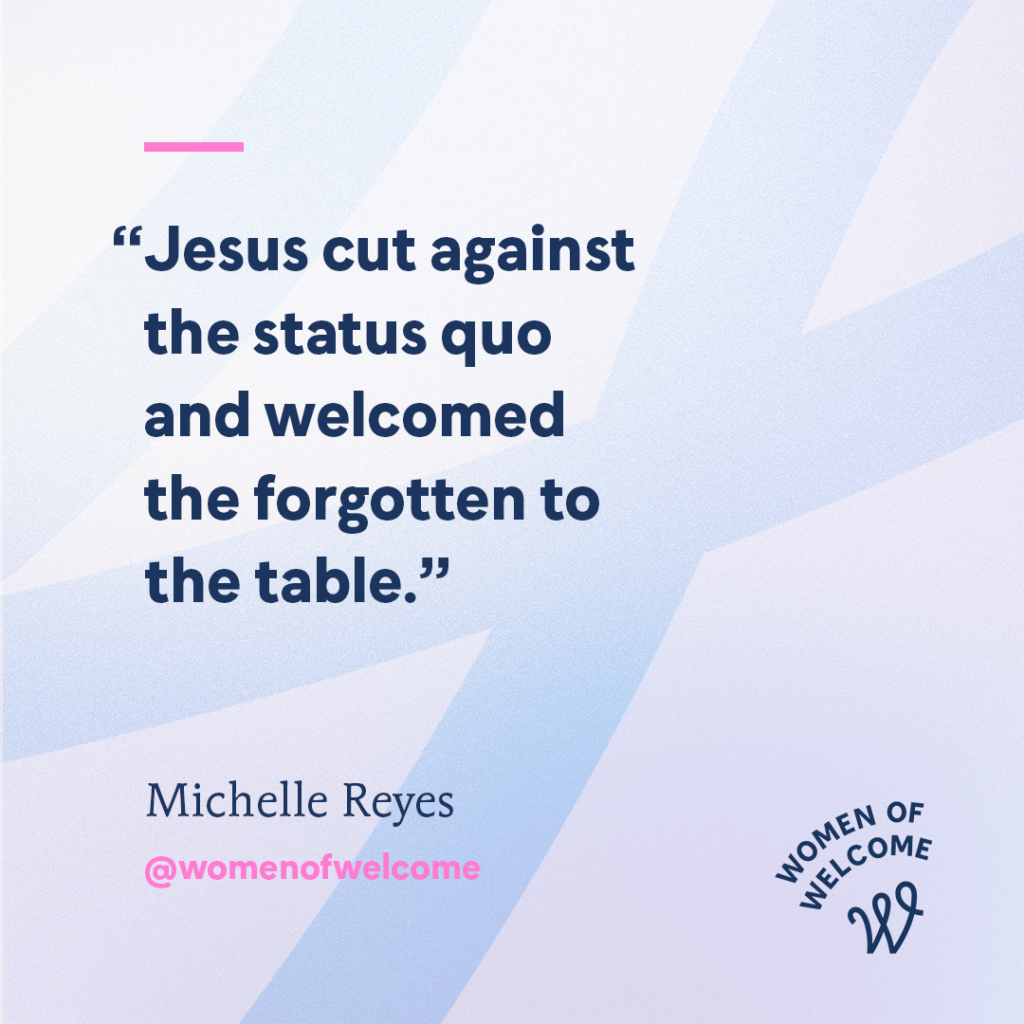Luke 18:35-43
As Jesus approached Jericho, a blind man was sitting by the roadside begging. When he heard the crowd going by, he asked what was happening. They told him, “Jesus of Nazareth is passing by.”
He called out, “Jesus, Son of David, have mercy on me!”
Those who led the way rebuked him and told him to be quiet, but he shouted all the more, “Son of David, have mercy on me!”
Jesus stopped and ordered the man to be brought to him. When he came near, Jesus asked him, “What do you want me to do for you?”
“Lord, I want to see,” he replied.
Jesus said to him, “Receive your sight; your faith has healed you.” Immediately he received his sight and followed Jesus, praising God. When all the people saw it, they also praised God.
In today’s passage (Luke 18:35-43) we find a blind man, sitting on the side of the road outside the city of Jericho. Much like the demon-possessed man that Jesus encounters in Luke 8, this man is rejected, isolated, and all alone.
As a blind man, he can’t work. He is poor, and his main source of income is from begging. But he can’t even do that within the city walls. He’s treated as an outsider and forced to beg outside of the city. It’s like this blind man has a double handicap—he has a physical disability and he’s not allowed to be near the hustle and bustle of his town where folks could possibly take care of him. The people of Jericho deem that this man’s physical condition makes him an inferior citizen, and so they remove him from their community, making him both out of sight and out of mind.
When the blind man learns that Jesus is passing by him, he cries out (not once but twice), “Son of David, have mercy on me!” You can hear the desperation in his voice. Being outside the city, it’s like the blind man is stranded on an island, and now he’s shouting at the top of his lungs for the only ship that can save him.
The blind man’s request for mercy is provocative. Here is a man who has been abandoned by his fellow humans and yet he hasn’t given up all hope of regaining acceptance. In asking Jesus for mercy, he is begging for compassion. To have mercy on someone is to show them a kindness they have not received from others. The blind man has faith in Jesus’ healing mercies, that Jesus can heal him, and he does.
Jesus says to him, “Receive your sight; your faith has healed you” (v. 42). Immediately the blind man can see and he follows Jesus. What I love about this story is that it cuts against the grain of Christian missions today that we should only focus on getting people to confess their sins and put their faith in Jesus. Jesus cares for this blind man’s soul, certainly. But he also cares about his physical health and social standing. When Jesus gives this man his sight, he enables him to be reintegrated into society as an equal citizen. Jesus’ healing is a declaration that the blind man has a right to be treated equally and to have access to the same work, resources, and dignified treatment that everyone else in the city of Jericho has.
Christ-like welcome to the vulnerable is always holistic. Jesus cares about redeeming whole persons and reingratiating them into a restored community. The physical, political, and economic realities of the forgotten matter to Jesus, and he helps each person be set free from the pains and struggles that have caused their erasure.
I think about the vulnerable people in our cities, pushed to the margins, living on roadsides. I think about those experiencing homelessness and living under bridges and immigrants sleeping in tents under the open air on dirt grounds at the border. I also think about those with physical and mental disabilities who are sidelined in other ways in their communities.
We are called as Christ-followers to play a role in helping the forgotten become reintegrated into society. Like Jesus, we can care for their social standing, their access to adequate housing, food, and other resources. We can care about their health and access to medical care. May we see the hurting, the vulnerable, and the forgotten, and have compassion on them like Jesus did.
Thoughtful Questions:
- When you see someone on the side of the road asking for money or food, what thoughts generally come to mind?
- What are practical ways that you could invest your time, resources, money, and voice to help the forgotten in your community (e.g., those experiencing homelessness, immigrants, the poor, those with disabilities) to be treated as equal citizens and human beings?

 This resource answers the most common questions Christians have about immigration and equips you to engage conversations with biblical clarity, truth, and grace.
This resource answers the most common questions Christians have about immigration and equips you to engage conversations with biblical clarity, truth, and grace.